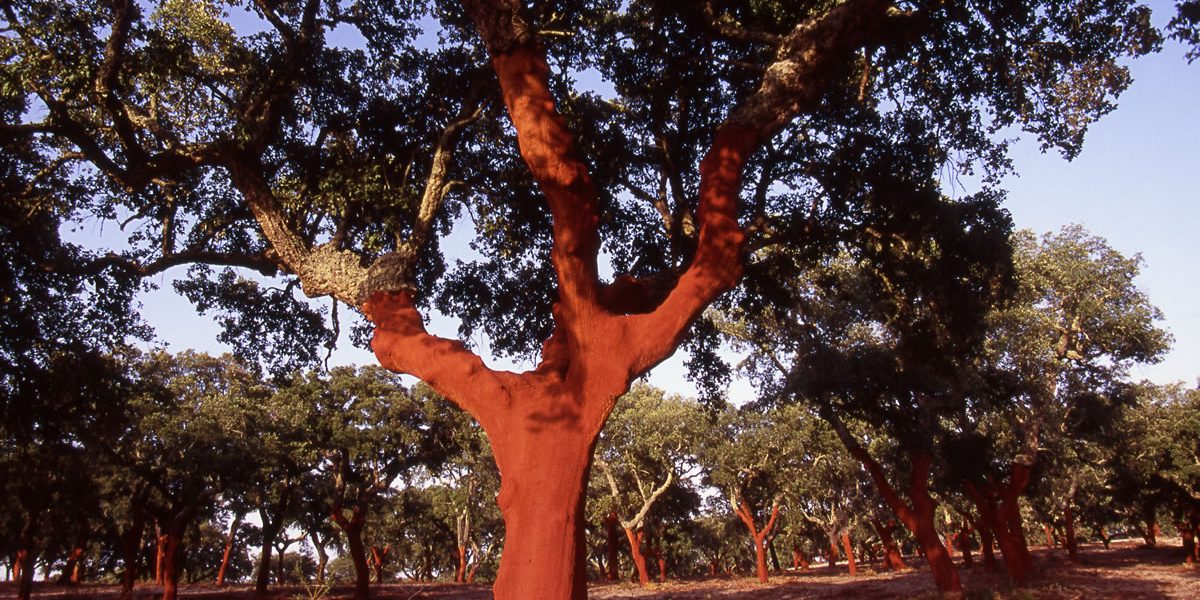Cork is actually just another name for the bark of particular oak tree (Quercus suber, more commonly known as Cork Oak), which is native to southwest Europe and northwest Africa. They can grow as tall as 20m and live for over 150 years and form stunningly beautiful forests, particular in central and southern Portugal where they are very extensive (accounting for around 50% of the world’s cork trees). These forests support an amazingly diverse ecosystem that has been left broadly untouched for centuries and in Portugal they are so valued it is illegal to cut down a Cork Oak.
Cork is harvested by stripping the bark from a tree and the fantastic thing is, this does not harm the tree at all. The bark is then left to grow back and nine years later it can be harvested again. So if ever there was a sustainable, environmentally friendly product, cork is it! No machinery is used to strip the bark from the tree – just a very sharp little axe and a very skilled woodsman. The skill is to take the bark off in large pieces (or planks) and to make sure that the tree itself is not harmed by the axe. Typically this is a technique that is passed on from generation to generation and highly skilled woodsmen are much sought after.
The European cork industry produces around 300,000 tonnes of cork a year with a value of around 1.5 billion euros (although prices can vary considerably from year to year). Wine corks reflect just 15% of the cork sold by volume, but around 65% of the total value of cork products sold – this is because good quality natural wine corks are highly valued by vineyards because of their unique properties in terms of preserving and nurturing wines in the bottle. There is also an aesthetic appeal to a natural cork stopper that synthetic stoppers cannot hope to match, and they can serve as a badge of quality for the wine.
Wholesale wine corks are generally priced by the thousand and the price might go from under 50 euros per thousand for small (33mm) agglomerated corks to 800 euros per thousand for natural super premium (“flor”) large (48mm) corks. The quality of a cork depends on its structural reliability, the smoothness of the surface and the type of production process (as some cork manufacturers have more sophisticated production methods than others).








